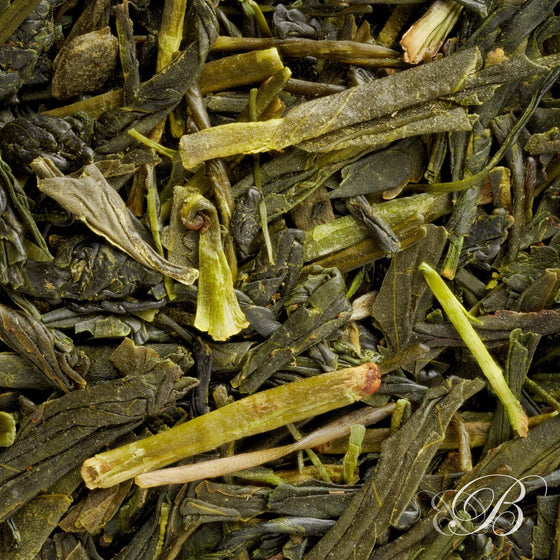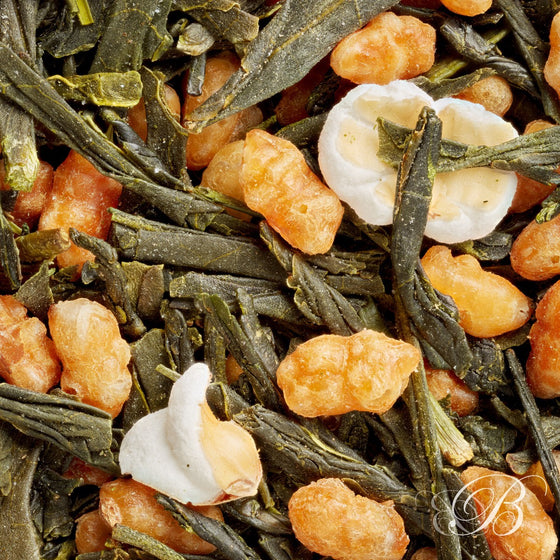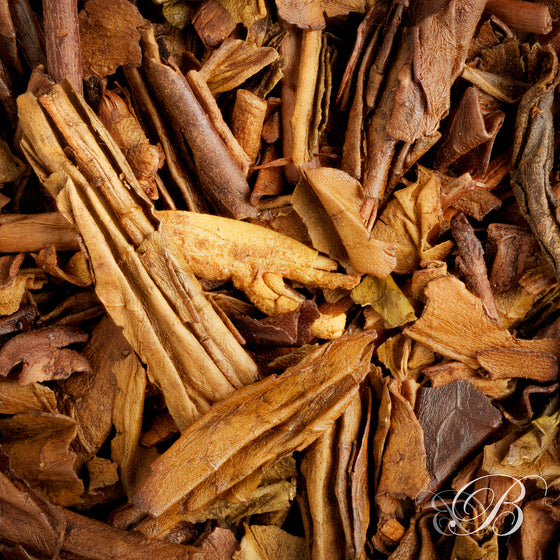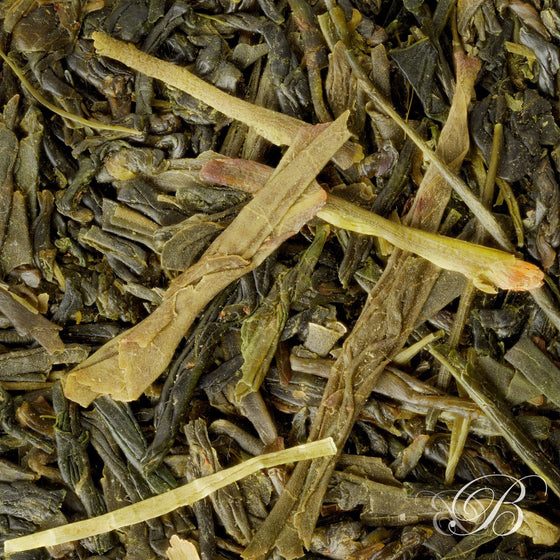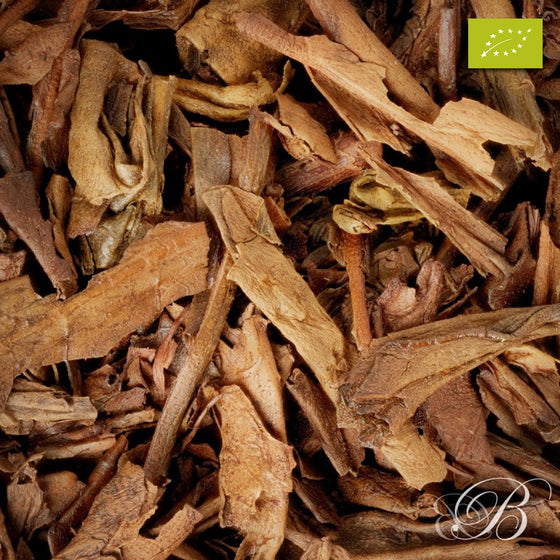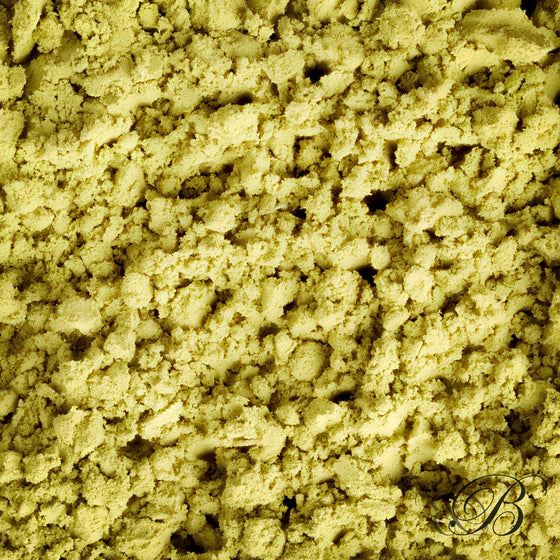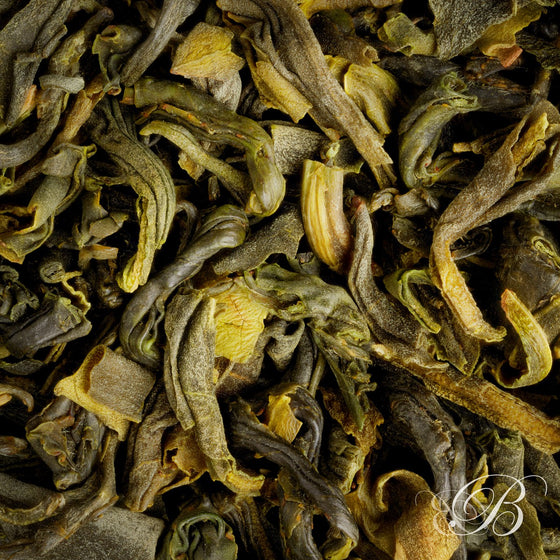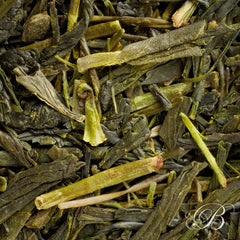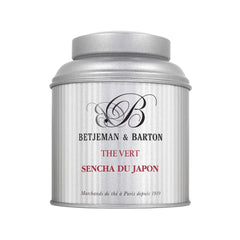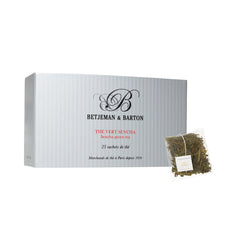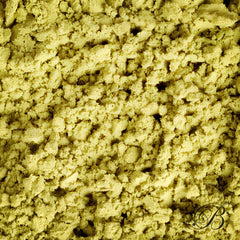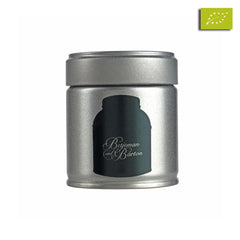Japanese tea: a centuries-old tradition
In Japan, tea is undoubtedly the national drink. It is an inseparable element of the country's culture and even boasts an art form thanks to the famous tea ceremony, also known as "Cha No Yu."
Tea was not originally produced in Japan; it was introduced to the country via China during the Nara period in the 8th century. It was the monk Eichû who, upon returning from China, brought back the first brick-packed tea for Emperor Saga to taste. Enchanted by this new flavor, the emperor then had tea bushes planted around the present-day city of Kyoto.
For several centuries, theJapanese tea remains the drink of the elite. It was notably consumed in powder form by the military aristocracy. From the 12th century onwards, competitions also began to be organized: the tocha, which aimed to reward players who managed to recognize the greatest number of varieties of tea. However, these competitions were eventually banned and replaced by tea ceremonies that advocated harmony, respect, serenity and purity. The tea ceremony was even codified by the tea master Son no Rikyû.
Brewed tea as we know it today was not produced and consumed in Japan until the Edo period (1603 to 1868). It was thanks to this new process that tea began to become popular, and it was even exported as early as the 19th century.
Today, tea remains an essential part of daily life in Japan, but it has modernized considerably over the years.
Green tea, black tea, Matcha and Oolong: discovering the Japanese aromatic palette
In Japan, it isgreen tea, which is cultivated as a priority. And, within this family of teas, Sencha represents the largest share of production. Black tea is of course also produced in Japan: it is less abundant than green tea, but also of particularly high quality.
Green tea and black tea actually refer to a large number of different varieties of tea.
Matcha, for example, is agreen tea particularly popular in Japan, like Sencha. Matcha is, however, considered one of the noblest green teas: consumed in the form of green powder, it is used during the tea ceremony, but is also incorporated into pastries. To obtain this green powder, the Japanese dry and pass tencha leaves between two granite millstones: the objective is to obtain very fine particles that can be easily mixed with water. After pouring the powder into a bowl, a ladle of hot water is added and whisked until a foam as thick as pea purée is obtained.
If theMatcha is a noble tea, Sencha is more of a popular tea, it is even one of the most consumed in the Land of the Rising Sun: it alone represents 80% of green tea consumption! But be careful, Sencha is nonetheless a prestigious tea: it is in fact picked during the very first harvest, that is to say the noblest. It is a tea whose oxidation is stopped with jets of steam before drying the leaves.
Among the most famous Japanese green teas, we can also mention theGenmaicha,the Hojicha, THEGyokuro. Japan is also a country renowned for producing more confidential, precious and rare teas: notablyTamaryokucha.
Black tea exists in Japan, but it is produced in very small quantities compared to green tea. The most iconic of these is Kocha, which means "black tea." This is a rare black tea produced in small quantities and often organically.
Finally, when we talk about Japanese tea, Oolong tea must of course also be in the spotlight. Oolong tea is renowned because it is a tea halfway between green tea and black tea, its oxidation is incomplete and even deliberately stopped. Oolong tea is known for its ability to offer very wide aromatic palettes.
Discover our selection of prestigious Japanese teas
In an effort to offer you some of the finest teas, we have selected renowned Japanese teas for you, as well as more confidential teas, produced in limited quantities and whose preciousness you will particularly appreciate.
You will of course find thefamous Matcha tea, THEtraditional green tea from Japanrenowned for its natural and vegetal notes. Our selection also features green teas, including Genmaicha, Gyokuro, Hojicha Organic roasted green tea, Sencha of course, but also the rare and precious Tamaryokucha.
Whether you are a Matcha lover,green tea loverOrblack tea, let yourself be seduced by aselection of exceptional Japanese teaswhich illustrate the importance given to this drink in the Empire of the Rising Sun.
